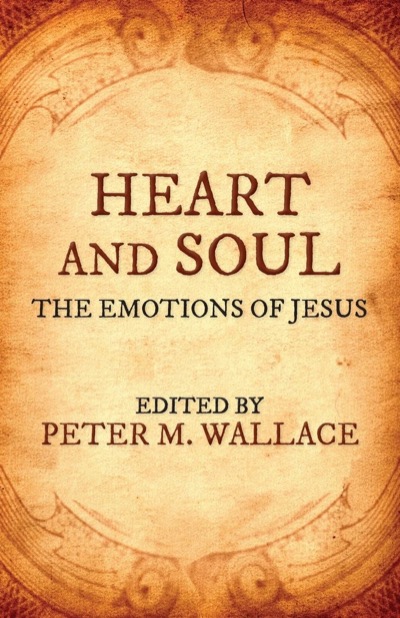 EDITOR’S NOTE: We say that a book is a community between two covers—inviting readers to join the author in a national conversation.
EDITOR’S NOTE: We say that a book is a community between two covers—inviting readers to join the author in a national conversation.
Occasionally that conversation also unfolds between two authors and two books, which is happening this autumn with Day1 radio producer Peter Wallace and Lincoln scholar Duncan Newcomer.
Peter wrote the foreword to Duncan’s new book, 30 Days with Abraham Lincoln: Quiet Fire. Since the book was published this autumn, Peter also has published his foreword to the Lincoln book on the website for his national radio network, Day 1.
When Peter’s new book Heart and Soul: The Emotions of Jesus was published, Duncan discovered a strong connection with his own interest in helping readers to rediscover the compassionate vision of Lincoln. So, Duncan wrote the following reflection as part of our ReadTheSpirit cover story, this week. (To read the other half of this week’s Cover Story, here is David Crumm’s interview with Peter Wallace about Heart and Soul.)
In reading this column by Duncan, we invite everyone to order these two books and join in this very timely national conversation. How do you do that? Start by reading. Then, when you care to respond, visit either the Day 1 website or the Lincoln resource page. You’ll discover lots of ways you can enter these compassionate communities.
.
Reclaiming the humanity of Jesus with Peter Wallace
By DUNCAN NEWCOMER
“Jesus wept.”
This is not the catharsis of the spectacle of a Greek tragedy, nor even a therapeutic release. It is the yearning of the heart for something that seems not to come to be. For Mary it was her fear that Jesus was too late to help her brother Lazarus so that he might have lived. For Jesus it was that the whole City of Jerusalem might have come to a new kingdom of God.
“Jesus wept.” This is not nostalgia for what has been. It is Jesus’s excruciating yearning confronting his awareness of a defeated hope.
For our lives, it is not the teachings of Jesus, not even the idea of atonement and other dogma named after Christ. It is the heart of God and the humanity of Jesus that indicates the potential of God within us.
Of the teacher and the parent it is often said, “I don’t remember really anything that they said, but I never forgot how they made me feel.” These are words that go beyond emotion to lifelong consequence, ill or well.
And so it is that a book revealing the emotions of Jesus has it radical appeal. One thinks of the way feelings and thought have been united, not divided. Jesus did not say, “I think therefore I am.”
But there is also a noted moment in the young lives of the American 19th century heroes William James and Oliver Wendell Holms, Jr. at their philosophy club meeting at Harvard. Holmes hotly said to James, “To think is no less than to feel.”
So how do we integrate emotions and thinking? How do we really find what Boethius called the Consolation of Philosophy, or what Shakespeare invented in his phrase: “think feelingly”?
If these are your concerns, then this slim but incisive new book of religious and spiritual reflections, edited by Peter Wallace, will move you to the implications of those concerns. In other words, an exegesis of feeling placed in the terms of the revelations of Jesus can bring your mind and your heart to a place you have always desired, a holy place that you did not know was holy until you wrestled with your emotions as well as with your thoughts.
Emotions are a difficult vocabulary for the masculine side of life and it is particularly valuable that these seven essays, sermons really, were written a century ago by Scottish Presbyterian New Testament scholar teaching at Knox College in Toronto, Canada.
For too many years, we collectively have labored under false assumptions about how much we can or should embrace either emotion or reason. It is often difficult even today for a man to credit his feeling—as it was in Law’s era to assume that a woman’s thinking was suspect. These wrongs are addressed by the remarkable, really beautiful perceptions of Jesus and his emotions in this book.
This book is not hard to read—but it is profound.
It is not just thoughtful—it is itself emotional.
Nothing could be more relevant to us in this time of climate catastrophes, refugees, epidemics, violence and economic injustices. What in God’s name are we to do with our emotions? Whether one thinks of the prayers and tears of Jacques Derrida or the tears of Mary and Jesus, we are now in the place of the sorrows of the heart and the rebirth of our soul.

